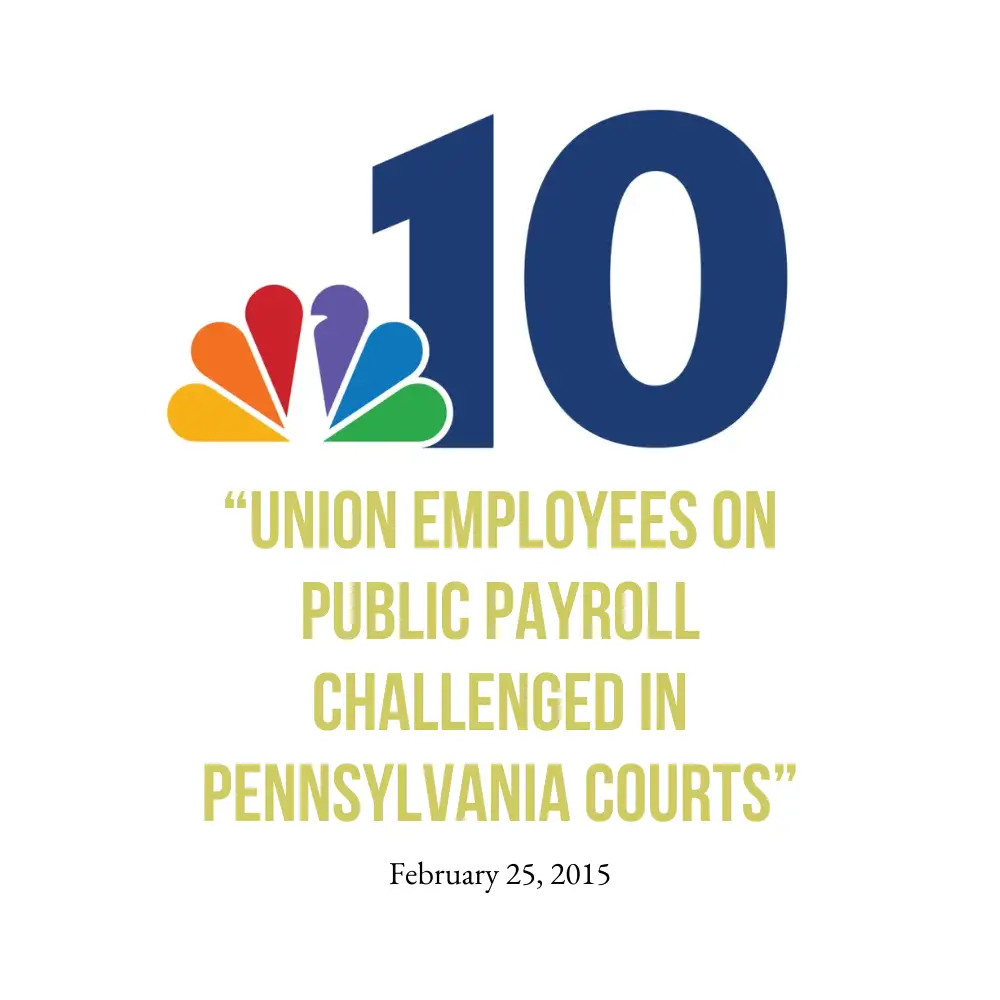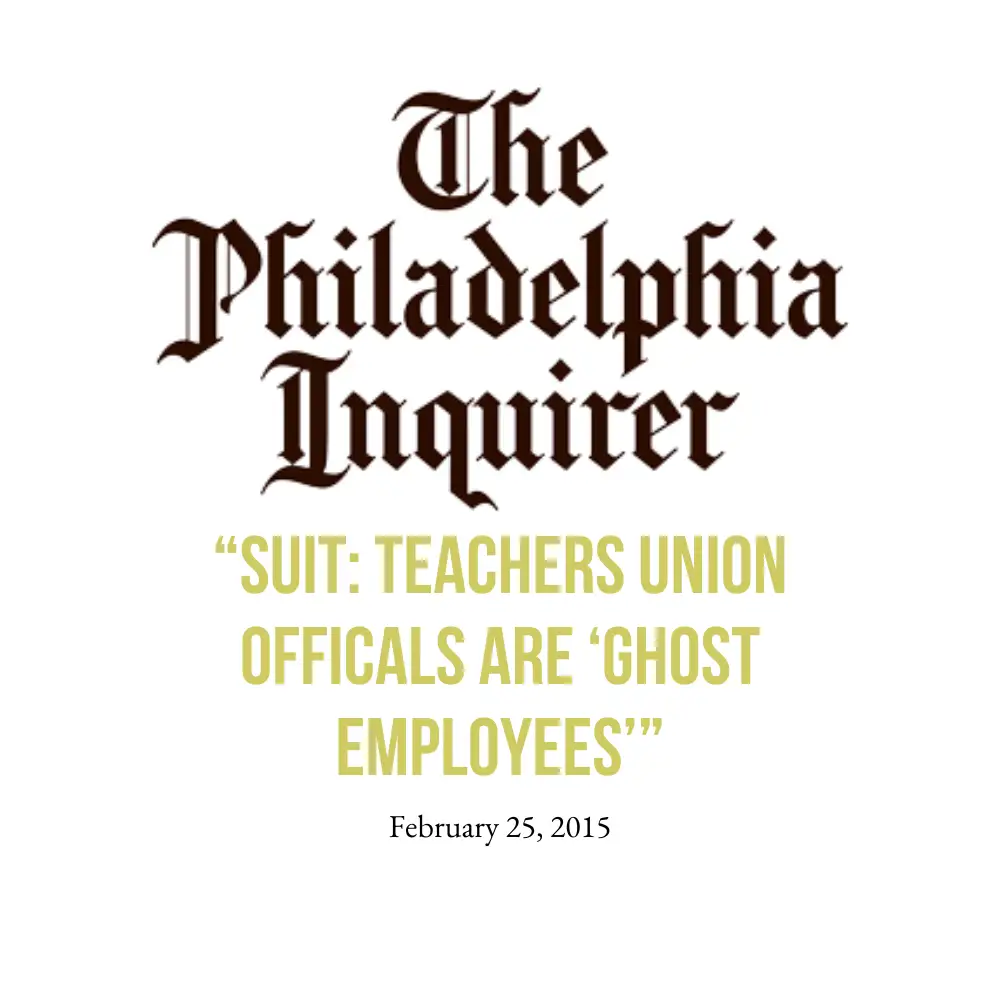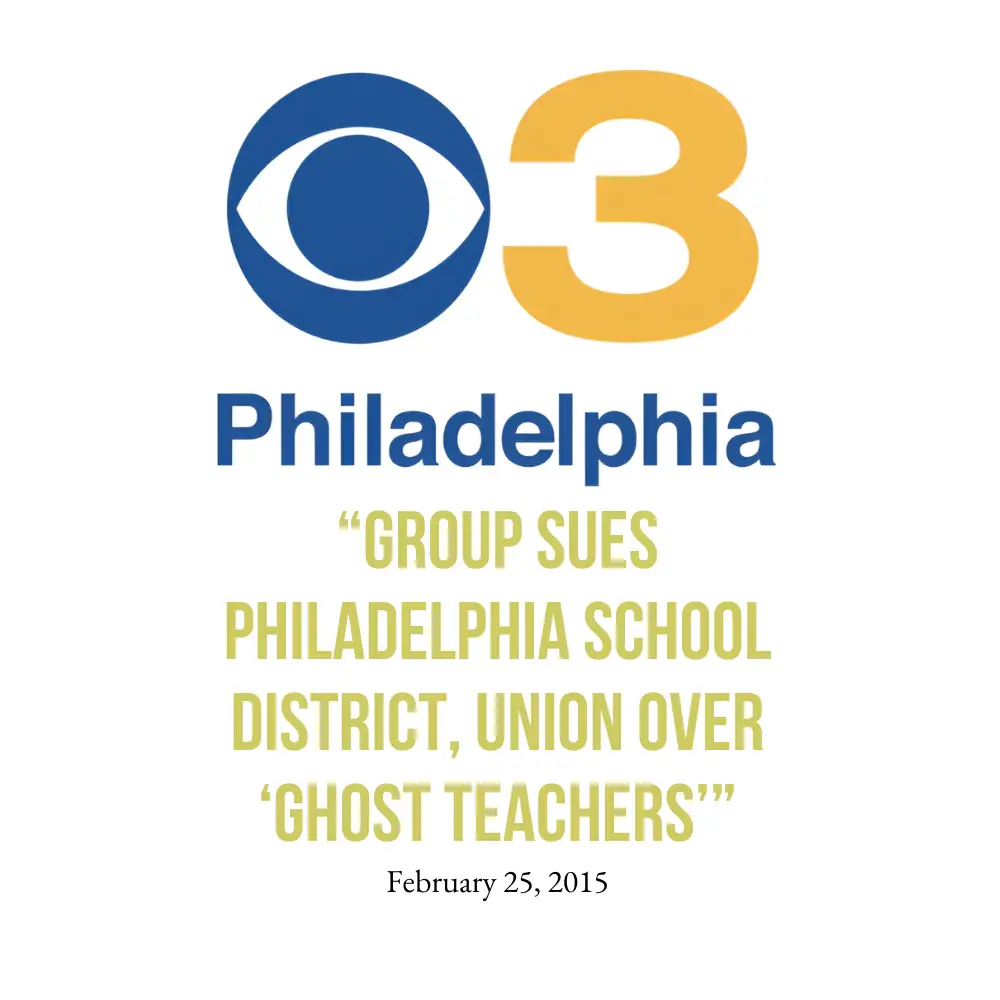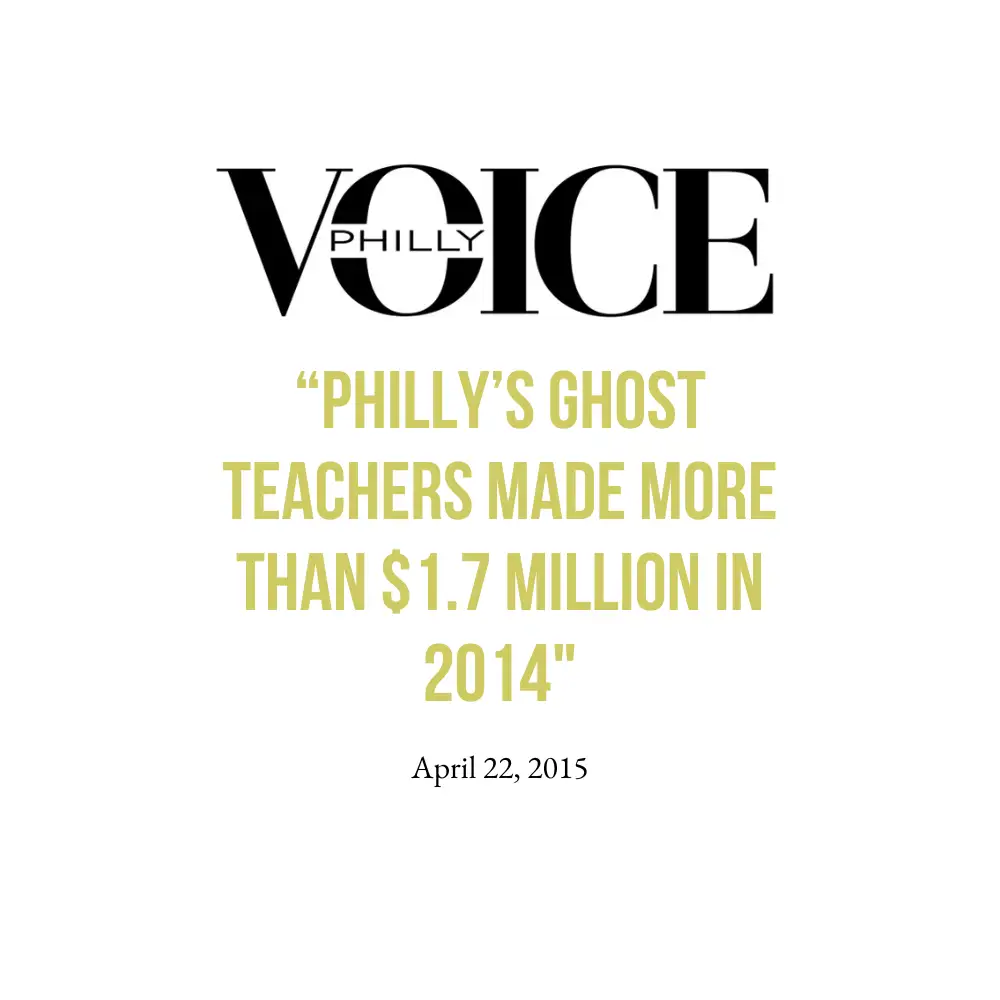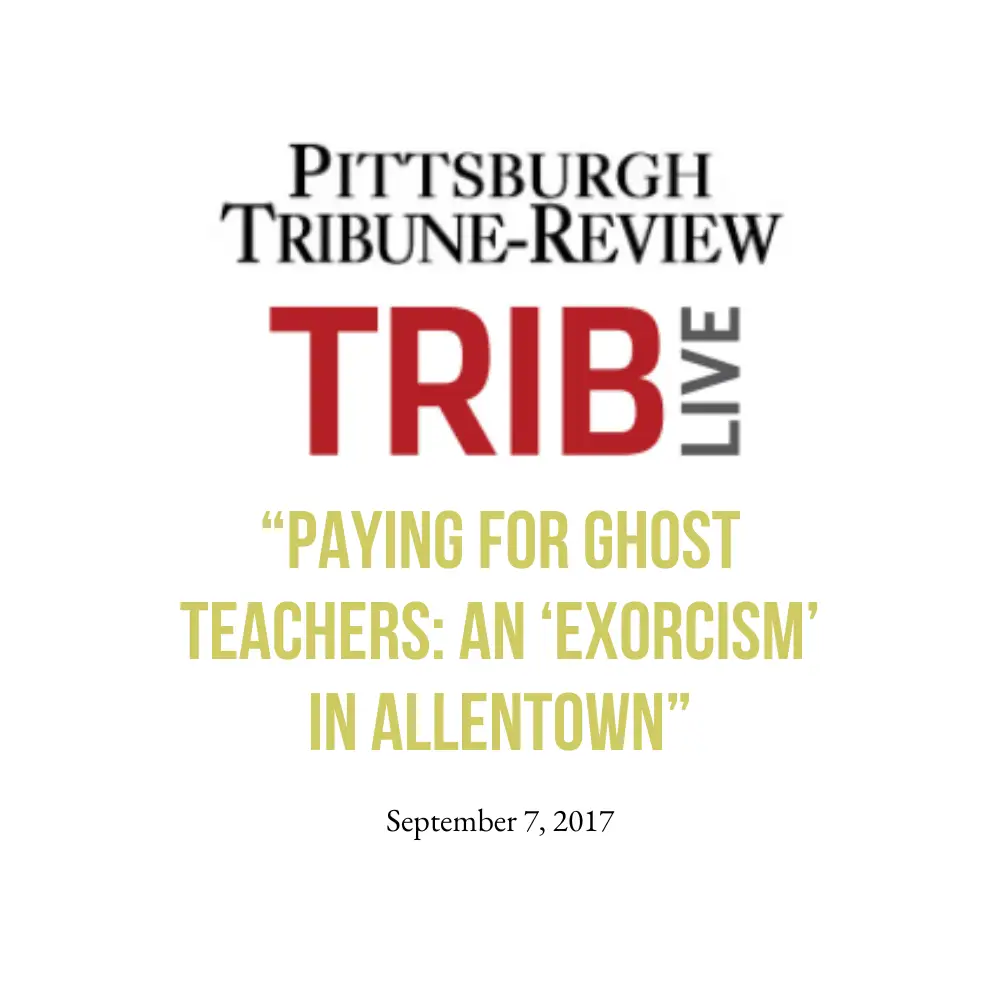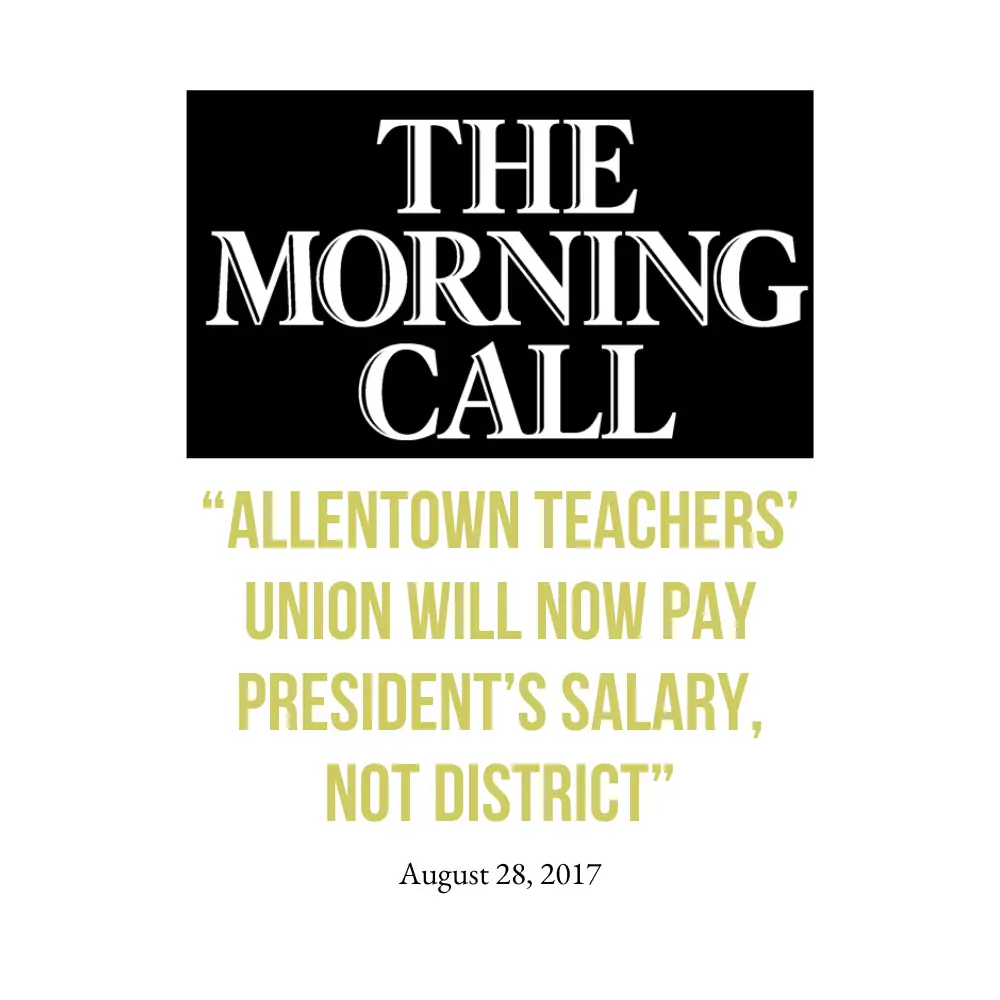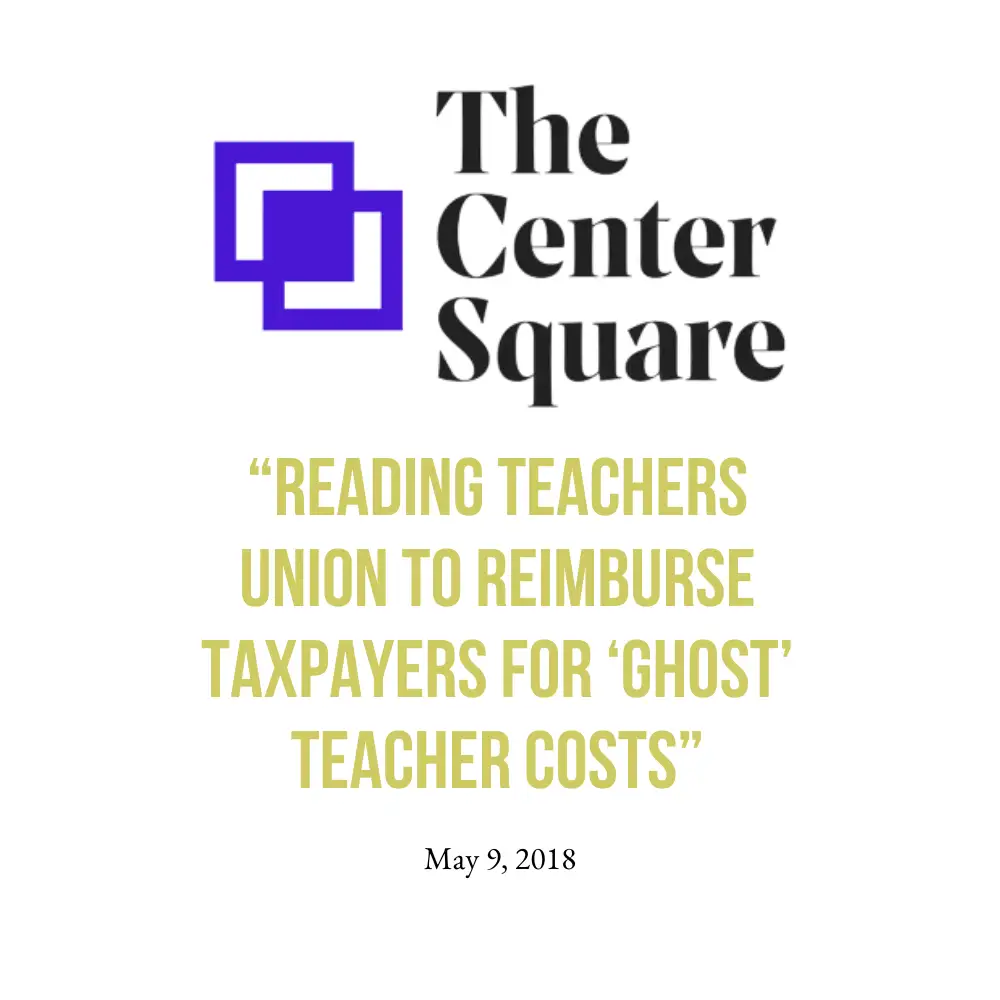Ghost Teachers Exorcised from Pennsylvania Schools
Ramos v. AEA | AFFT v. PFT | AFFT v. REA
Case Summary
- Ghost teachers once haunted the halls of Pennsylvania’s largest school districts with impunity. These public-school educators abandoned their classrooms for full-time teachers’ union advocacy, serving as union officials while still getting paid as teachers and illegally draining the public pension system.
- Beginning in 2015, the Fairness Center’s clients began challenging the practice in the court of law and the court of public opinion and sparked a wave of reform.
WHAT IS A ‘GHOST TEACHER’?
In Pennsylvania and many other states, public-sector collective bargaining agreements may contain a provision called “release time,” “official time,” or “union leave” that allows an employee or employees to stop working for their public employer and begin working for their union, instead.
In schools, teachers on full-time union leave—who we dubbed “ghost teachers”—earned a teacher’s salary, pension and health benefits, and seniority—just as if they had remained in the classroom.
Our clients were concerned about how ghost teachers could harm public schools by redirecting money and personnel away from the classroom and determined to expose and reform the practice.
CHALLENGING PHILADELPHIA GHOST TEACHERS
In 2014, Philadelphia’s teacher contract allowed up to 63 ghost teachers, like Philadelphia Federation of Teachers (PFT) president Jerry Jordan, to cut class and work full-time for the union. Their district-paid salaries amounted to $1.7 million at the time, according to news reports.
Americans for Fair Treatment (AFFT), a nonprofit that educates public employees about their rights, had members—including Philly teachers and taxpayers—who sought our help to challenge this arrangement. They saw ghost teaching as a violation of the Pennsylvania Constitution’s “gift clause,” which says, “The credit of the Commonwealth shall not be pledged or loaned to any individual, company, corporation, or association[.]”
In their 2015 lawsuit, filed with the Fairness Center’s help, AFFT alleged that subsidizing the salary and benefits of teachers’ union officials violated this clause.
Though Philadelphia’s collective bargaining agreement with the PFT did not require reimbursement for ghost teacher expenses, the union claimed to be offsetting related costs.
The lawsuit launched a media firestorm across state and national media, directly leading to successes for our clients elsewhere, even though the court ultimately found that AFFT did not have standing to challenge the arrangement and never ruled on the merits of the case.
GHOST BUSTING: ALLENTOWN
The Philadelphia lawsuit’s media exposure reached school board member Scott Armstrong in Allentown—Pennsylvania’s third-largest city. The Allentown School District had been paying a full-time ghost teacher, the Allentown Education Association (AEA) president, for years, amounting to $1.3 million in unreimbursed taxpayer costs by 2016.
Scott joined with local taxpayer Steven Ramos and teacher James Williams to sue the school district and the union that year. Their litigation cleared an important hurdle by establishing standing for taxpayers and vested pension participants to challenge improper government spending.
Our clients took additional steps to address the illegality of allowing a full-time union employee to accrue pension credits. They filed a complaint with the state’s Public School Employees Retirement System (PSERS) to prevent PSERS and the union from negotiating to keep pension credits for Allentown’s ghost teachers—and got results. PSERS revoked all past pension credits “earned” by the two most recent AEA presidents for the time they had spent working for the union.
Facing mounting pressure, the school district and teachers’ union ended their illegal ghost teaching arrangement, ensuring that any future full-time union release would be 100% reimbursed by the union. Having accomplished their goals, Scott, Steven, and James withdrew their case.
GHOST BUSTING: READING
In 2017, on behalf of local taxpayers, Americans for Fair Treatment challenged a ghost teacher practice in Reading—Pennsylvania’s fifth-largest city. Reading had recently been dubbed the poorest city in America, yet over six years, its taxpayers had spent more than half a million dollars to cover the salary and benefits of the Reading Education Association president.
This litigation followed the pattern our clients in Allentown established, and the union agreed to end its illegal ghost teacher practice.
LITIGATION SPARKS STATEWIDE REFORM
Our clients’ courtroom and public relations success made waves across the state. Newspaper editorial boards condemned ghost teaching. Pennsylvania lawmakers introduced two bills to reform ghost teacher practices. And two more large, urban school districts, Erie and Lancaster, voluntarily changed their teacher contracts to reform ghost teacher provisions.
After multiple ghost teachers had their public pension credits revoked, the Pennsylvania State Education Association, the state’s largest teachers’ union, purchased nearly $600,000 in annuities to replace the local union presidents’ retirement losses.
Our clients achieved their goals to expose ghost teachers, reform the practice, and place retirement costs where they belong—with the union, not taxpayers.
Case Status & Documents
- Philadelphia complaint
May 22, 2015 - Allentown complaint (Commonwealth Court)
February 24, 2016 - Allentown complaint (PSERS)
February 24, 2016 - Reading complaint (Berks County court)
June 1, 2017 - Reading complaint (PSERS)
June 1, 2017

